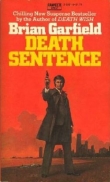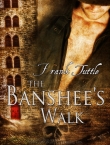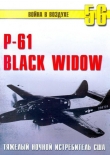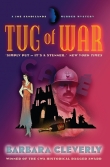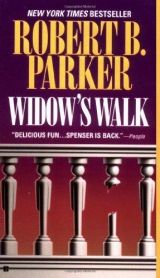
Текст книги "Widow’s Walk"
Автор книги: Robert B. Parker
Жанр:
Крутой детектив
сообщить о нарушении
Текущая страница: 8 (всего у книги 13 страниц)
CHAPTER THIRTY-SEVEN
Mary Smith wouldn’t talk to me without Rita there, and apparently she wouldn’t talk with Rita unless Larson Graff was present. We met for lunch at Aujourd’hui in the Four Seasons Hotel. It felt like a double date.
Most of the people and all of the men watched Rita walk in. She was dressed for success in a dark green suit with a short skirt and a V-necked jacket. Her smooth tan looked healthy even though it wasn’t, and her thick red hair was in perfect shape. Susan had told me that red-haired women needed to make up with particular care, and Rita appeared to have done it just right.
In her beige pantsuit and careful blond hair, Mary looked a little pallid next to Rita. Larson looked like Larson and I remained dashing and ineffable. Mary had a champagne cocktail. The rest of us sipped Perrier.
“Why didn’t you authorize me to see your husband’s investment statements?” I said to Mary.
“Whaat?”
“Brink Tyler called you from his office and asked you if you’d authorize him to show me your husband’s investment statements,” I said.
“He did?”
I nodded.
“I don’t remember that.”
“Last week,” I said. “About three-thirty in the afternoon, on a Tuesday.”
“I get so many calls,” Mary said.
Rita was sitting to my right at the table. She was sort of sideways to the table, half facing toward me with her legs crossed. She smiled when I looked at her and carefully hitched her skirt hem up another inch on her thigh.
“I was there when he called you,” I said.
“I don’t remember,” she said.
I looked at Rita again.
“Mary,” Rita said, “we’re all on the same side here. If you can help him, you should.”
“Oh, Rita, I know. I know that. I really, really do. But you wouldn’t want me to lie about something. I absolutely can’t remember Brink Tyler calling me up last Tuesday.”
“When’s the last time you talked with him?” I said.
Mary had some champagne cocktail to help her think. Any help was welcome.
“I can’t really recall. Larson? Do you recall when I talked with Brink last?”
“I believe you and he spoke shortly after Nathan’s death. He was handling the estate.”
“Yes. That’s right. Brink came over. He was so kind. He said he’d take care of everything.”
“The broker’s handling the estate?” I said.
“He’s an attorney as well,” Rita said.
“Renaissance man,” I said. “Aren’t you ashamed, Rita, just doing law law?”
“And that badly,” Rita said.
“And how is your estate?”
Mary looked a little vague. “Fine.”
She looked at Rita.
“Estate’s in a kind of legal limbo,” Rita said. “Until the cause of death gets clarified a little.”
“Do you know how much you’ve inherited?” I said.
Mary shook her head. “Nathan always said we didn’t talk about our money. That it wasn’t dignified.”
“It might be dignified to know how much you had,” I said.
She looked helplessly at Larson Graff.
“Mary, I’m sorry. I’m in no position to know your finances.”
“Well,” Mary said. “Certainly your bill is always paid on time, Larson.”
“Oh yes. It certainly is,” Larson said.
The waitress brought lunch, which consisted of three salads and a sandwich. I got the sandwich.
“So, just so I understand,” I said to Mary. “You don’t know what your financial situation is, or you know, and feel it’s undignified to say?”
Mary looked down at her salad. She speared a small slice of avocado and put it delicately in her mouth and chewed it more vigorously, I thought, than it required. When she had swallowed it, she took another sip of her champagne cocktail. Mary was dumb. But she moved very slowly. She looked at me and laughed as if she might be embarrassed.
“I don’t really know, Mr. Spenser.”
“Do you object if I find out?” I said.
“Well, I really.”
She looked at Larson. Larson wasn’t helpful. She looked at Rita. Rita nodded firmly.
“Well, I really think it’s kind of, I don’t want to be offensive, but I really think it’s kind of nosy.”
“God forbid,” I said.
Rita smiled.
“You never got a call from Brink Tyler last Tuesday asking if Spenser could look at the investment statements?”
“Oh, Rita, I’m just so sure he didn’t.”
Rita looked at me. I looked at Rita.
“So who’d he call?” Rita said.
CHAPTER THIRTY-EIGHT
Hawk was in my office when I returned. He was sitting in my chair with his feet up on my desk, reading Simon Schama’s History of Britain.
“You interested in British history?” I said when I came in.
“Naw. Read this dude’s book on Rembrandt. I like him.”
“Lot of big words,” I said.
“Thought you could help me.”
“White man’s burden,” I said. “Gimme my chair.”
Hawk grinned and dog-eared his page and closed the book and got up and came around and plonked in a client chair. I sat at my desk.
“There,” I said. “You looking for a place to sleep?”
“Nope. Since I ain’t following anybody for you at the moment, and since somebody tried to shoot your ass the other night, I thought maybe I should hang around with you, case somebody try again.”
“Plus,” I said, “you could learn a lot.”
“Be a privilege,” Hawk said. “Whyn’t you bring me up to date on what you doing, so I’ll know who to shoot.”
I did. Hawk listened without expression, his face the pleasantly impenetrable blank it always was.
“You got more information than you can handle,” Hawk said when I got through.
“I do,” I said.
“‘Course it easy for you to have too much information.”
“How about yourself,” I said. “You make anything out of it?”
Hawk grinned at me. “I’m just a simple thug,” he said. “I ain’t supposed to make nothing out of it.”
“That may be true of me,” I said.
“Simple thug?”
“Yeah.”
“Thing is, all of the stuff you know doesn’t add up to who done what.”
“That is the thing,” I said.
“You tell Mary her husband was gay?”
“No.”
“Rita gonna find out about Smith’s finances for you?”
“Yes.”
“When she do you’ll have more information.”
“And I still won’t know anything.”
“Be used to that,” Hawk said. “You think Mary lying, or you think the Brinkster call himself?”
“If he did,” I said, “it would be sort of a stopgap. He had to know I’d ask her myself pretty soon.”
“Maybe he figure you ain’t around, pretty soon.”
“Because he knew somebody would hit me,” I said.
Hawk nodded. “Or maybe he did call her,” he said. “And she lying when she say he didn’t.”
“Which might mean the same thing,” I said. “Except she’s so goddamned dumb.”
“Dumb enough to think you wouldn’t check on her?”
“She gets by with dumb,” I said. “She uses it. She may even rely on it.”
“There got to be some money in here someplace,” Hawk said.
“See, that’s just the reason you’re a hooligan and I’m a detective,” I said. “You jump to conclusions. I search for clues.”
“Here’s a clue,” Hawk said. “A banker, a financial guy, a real estate developer, and a lawyer. All connected in some way to a homicide.”
“Gee, you think there’s money involved?”
“How I know. You the detective. I is just a hoo-li-gan.”
“At least we’re clear on that,” I said. “Maybe we should revisit Jack DeRosa.”
“The jailbird? Why him?”
“Can’t think of anybody else?” I said.
Hawk grinned.
“‘Least he fit on the list,” hawk said. “Right after lawyer.”
CHAPTER THIRTY-NINE
I called Frank Belson and asked him if we could arrange to talk with DeRosa again. He called me back in an hour.
“DeRosa’s been out of jail for a week,” he said. “Eyewitness couldn’t pick him out of a lineup.”
“Charges dropped?”
“Yep.”
“Got an address for him?”
“Got the one he had when they busted him,” Frank said, and gave me the name of a street off Andrews Square.
In half an hour Hawk and I were crossing the bridge on Southampton Street. We were in Hawk’s Jaguar. Hawk parked it behind a place that sold orthotics, where it was about as inconspicuous in South Boston as Hawk was. We walked across the street to a brick duplex, which had a tiny front yard that had been carpeted with gray stone and surrounded by a chain-link fence. The downstairs windows were grated. There was a peephole in the front door.
“DeRosa don’t seem interested in botany,” Hawk said.
“He’s probably just a renter,” I said.
“Landlord’s a geologist?” Hawk said.
Above the doorbell button beside the right-hand door was a small hand-lettered card that said DeRosast.McDermott. I rang. No one answered. I rang again. Same thing. Hawk reached over and rang the doorbell on the left-hand door. Nobody answered. I looked through the peephole the wrong way, like I always did, and I found that I couldn’t see anything in that direction. Like I always did. I tried the door. It was locked. Hawk nodded and walked back across the street to the Jaguar and opened the trunk, took out a big red gym bag, and came back across the street with it. He set it down on the steps and took out a flat bar and handed it to me.
“Why do you have one if you can’t use it?” I said.
“I use it when I haven’t got an Irish-American laborer handy.”
I took the flat bar and got it wedged in against the doorjamb where the lock tongue would be and heaved and there was some doorjamb splintering and then the bolt tore loose and the door popped free. I put the flat bar back in the red gym bag and handed it to Hawk.
“Tote that bale,” I said.
He took it back to the Jaguar. No one in the neighborhood seemed interested that I had just performed the B part of a B and E. I pushed the door open. The lock I had jimmied was the kind that locked behind you when you went out. The house was silent. And hot. And stuffy. Lights were on in the hallway. I smelled a bad smell. Hawk came in behind me from his bale-toting chores. I could hear him breathe in.
“Whoops,” Hawk said.
I nodded and, breathing through my mouth, started through the front hall toward what was probably the living room. I knew what I would find. Hawk walked beside me. Inside the living room archway we both stopped.
“Jesus,” I said.
“Un-huh,” Hawk said.
The distorted remains of a man and woman lay together on the floor, their bodies disfigured by the slow flame of decay. The woman sprawled diagonally across the man. Someone had shot them many times, probably with an automatic weapon, maybe more than one. They had, in the process, chopped the room up pretty good. Pieces of chair backs, scraps of upholstery, bits of lamp shade, shards of glass, and fragments of plastic, and plaster, and human tissue clung to the walls. The blood covered the floor, black by now, and hardened like a vast scab. Insects had found them both. The room was very hot and flies buzzed thickly in the stinking air.
I had seen it before, but I never liked it. And this was worse than most. Except that I could hear him breathing through his mouth, Hawk showed no sign that it bothered him. For all that showed on his face, he could have been looking at a lawn tractor.
“DeRosa?” he said.
“I assume so,” I said. “And maybe McDermott as well.”
Hawk walked over to the corpses and looked down at them.
“Hard to be sure,” Hawk said. “McDermott the girlfriend?”
“I dunno. It’s the other name on the doorbell.”
“People dying just after you talk to them or just before,” Hawk said. “Somebody think you closing in?”
“I guess so,” I said. “Wish I had their confidence.”
“We pretty clear on what happened to these folks,” Hawk said. “You think Amy Peters a suicide?”
“No.”
“You believe Brink Tyler an accident victim?”
“No.”
Hawk was still staring down at the bodies. He shook his head a little to dispel a fly.
“They shot these people to pieces,” Hawk said. “I bet they got fifteen, twenty rounds apiece in them.”
“Had to make some noise,” I said.
“Anybody heard it, they ignored it,” Hawk said. “These people been here awhile.”
I looked around the living room. The windows were shut and locked. There was a big air-conditioning unit in a side window. I looked at it. It was turned off.
“When’s the last time it was cool?” I said.
Hawk shrugged.
“Don’t do weather,” he said.
We went through the house, living room and kitchen on the first floor. Two bedrooms and a bath on the second. The smell thickened the air in every room. All the windows were closed and locked. The air conditioner in the second-floor bedroom was shut off, too. The back door was locked. In the drawer of the front hall table we found a 9mm Colt, with a round jacked up into the chamber.
“Man locked everything,” Hawk said. “Yep. No windows open, even if it be cool when he shut off the AC, most people like a little ventilation in the summer.”
“It’s not a bad neighborhood,” I said. “But he was being pretty careful. Gun in the front hall. Round in the chamber.”
Hawk nodded. “He knew them,” Hawk said.
“Seems like it,” I said.
“He would have looked through the peephole,” I said. “And he would have unlocked the door when he saw them. The hall gun is still in the drawer. He wasn’t afraid of them.”
“And he should have been,” Hawk said. “You figure the broad got shot because she was here?”
“Could be. Or it could be she was part of the whole deal. Whatever the whole deal was. Or it could be they wanted to kill her, and he had the misfortune to be on hand.”
“Going to call the cops?” Hawk said.
“Guess we got to.”
“We could just close the door and walk away.”
“Your fingerprints in the system?” I said.
“‘Course,” Hawk said.
“Mine too.”
“So give them a call,” Hawk said.
CHAPTER FORTY
“We’ll let the B and E slide,” Quirk said. “But corpses keep showing up in your area, we might cite you for littering.”
We were outside, away from the smell, leaning on the fender of Quirk’s car. It was about six hours since we’d found the bodies. The prowl car guys had arrived first and questioned us and told us to stick around. Some District 6 detectives came and asked us questions and told us to stick around. Crime scene people asked us questions and told us the detectives wanted us to stick around. Belson showed up after a while and asked us questions and told us to stick around and wait for Quirk. An hour and a half ago Quirk had ambled in and told us to stick around until he was through.
“Anyone know the identity of the woman?” I said.
“Yeah, we talked with some neighbors. Name was Margaret McDermott. She was DeRosa’s girlfriend. Live-in. Been with him six, eight years,” Quirk said.
He was looking at Hawk. Hawk smiled at him.
“You bother me,” Quirk said. “I know you wouldn’t have aced these two people, then come back a week later and called us.”
Hawk smiled some more.
“And I know that when you’re with Snoop Doggy Dogg here, you may not be on the up-and-up, but you’re probably not illegal.”
Hawk’s smile seemed almost sweet as he listened to Quirk.
“On the other hand,” Quirk said, “I hate to come upon a double homicide and find you lingering about and give you a bye.”
I said, “I’m pretty sure he didn’t do it, Captain.”
“I’m pretty sure he didn’t, too,” Quirk said. “But not because you say so.”
“My word is my bond,” I said.
“I don’t know what the connection is between you two clowns, but I know you’d cover for him.”
“White guilt,” I said. “My ancestors might have owned slaves.”
“Yo‘ ancestors being bog-trotting paddies didn’t have the money to own no slaves,” Hawk said.
I looked at him sadly. “You wouldn’t understand,” I said. “It’s a white thing.”
“Isn’t this fun,” Quirk said. “Lemme get the other cops over here, give them a chance to listen.”
I said, “We’re just working on our material, Captain.”
“And it’s really enjoyable,” Quirk said. “Oddly enough there’s no warrants out on Hawk.”
“You sure?” Hawk said.
“I had it checked.”
“Embarrassing,” Hawk said.
“You got anything you can tell me about this thing?” Quirk said.
“Same as I tole the other six cops,” Hawk said. “I just along try to keep him from hurting himself.”
“Okay, you can drift,” Quirk said. “Spenser, I’ll talk a little more with you.”
Hawk nodded his head once, slightly, and walked away.
“I talked to the same six cops he did,” I said.
“You used to be a cop,” Quirk said. “You know how we do this.”
I nodded.
“I don’t know much more than I did after I shot the guy in Southie,” I said.
“You didn’t know much before you shot that guy in Southie. Name was Kevin McGonigle. Twenty-three, two priors for strong-arm.”
“Good to start young,” I said.
“And finish that way,” Quirk said.
I shrugged. “Him or me,” I said.
“I know. Tell me what you know,” Quirk said.
We were both leaning against Quirk’s car. Quirk’s arms were folded across his chest, and he was motionless except for the fact that the fingers on his thick right hand tapped gently on his left arm.
“Okay,” I said. “It’s a mishmash, but here it is, all of it.”
I told him everything in sequence from the time Rita had called me about Mary Smith until Hawk and I had come to visit DeRosa.
“You got a theory?” Quirk said.
“No.”
“If you count Nathan Smith,” Quirk said, “and I do, there’s him, the broad from the bank…”
“Amy Peters,” I said.
“… Tyler, DeRosa, the girlfriend, Kevin McGonigle.”
“Six,” I said.
“And all connected to you, one way or another.”
“Charisma,” I said.
“Six murders,” Quirk said. “And somebody threatens to beat you up and somebody hires McGonigle to clip you, and you got no theory?”
“There’s something being covered up,” I said. “And it’s connected to Nathan Smith.”
“Holy mackerel,” Quirk said.
“You asked.”
Quirk nodded. We watched the body bags load into the ME’S van.
“We find out anything, we’ll tell each other,” I said.
“I known you a long time,” Quirk said.
I didn’t comment. Quirk wasn’t really talking to me anyway. A couple of uniforms moved the small crowd out of the way as the ME’S van pushed slowly among them, hauling away the unpleasant remains of DeRosa and his girlfriend.
“And you are a stubborn bastard, and you don’t much give a fuck about how things are supposed to go.”
Quirk was still looking at the van. A uniform stopped traffic. The van turned left onto Southampton Street and moved slowly over the bridge.
“And you’re not as smart as you think you are, and nowhere near as funny,” Quirk said, still watching the van as it disappeared toward downtown. “But you’re on the right side of the fence.”
“How do you know it’s the right side?” I said.
“Same side I’m on,” Quirk said.
CHAPTER FORTY-ONE
We were in Hawk’s car. It was 10:15 on a bright summer morning when we pulled into the parking lot at Soldiers Field Development Limited. We had no trouble parking. The lot was empty. The front door of the building was locked. There was no sign of movement or light inside.
“B and E?” Hawk said.
“Might as well,” I said. “Practice makes perfect.”
Hawk handed me the flat bar, and in we went. There was no air-conditioning. The building was hot. The furniture was still in place. But no one was using it. We walked down the corridor to the back office where Felton Shawcross had sat. The corridor was dim. There were no lights on. There was a bank of file cabinets across the right wall of Shawcross’s office. I opened a drawer. It was empty. I opened them all. They were empty. Hawk looked in Shawcross’s desk. It was empty. He picked up the phone.
“Dial tone,” he said.
I tried a light switch. The lights went on.
“Didn’t bother to cancel anything,” I said.
We went methodically down the row of offices that lined each side of the long corridor. All of them were empty. All of the files were empty. The only things in the desk drawers were a few Bic pens, some blank paper, some rubber bands, paper clips, staples, and pads of yellow stick ‘em paper to draw smiley faces on.
“Didn’t leave no paper trail,” Hawk said. “Maybe they skipping out on the utility bills.”
“Probably it,” I said.
We had worked our way down the corridor and were standing in the reception area. There was no place else to look.
“On the wall in the men’s room it say for a good time call 555-1212,” Hawk said.
“Probably a clue,” I said.
A mailman in blue shorts came in carrying a packet of mail held together by a wide rubber band. He looked around.
“You guys moving out?” he said.
“Just rehabbing,” I said. “Closed for a couple of weeks.”
“You oughta notify us, fill out a form, have us hold your mail until you’re back in business.”
“What a very good idea,” I said. “My man here will be down to the post office later today to fill out the documents.”
“It’s just a form,” the mailman said. “What do I do with this mail?”
“I’ll take it,” I said.
He handed me the mail and left.
“My man be down to the post office?” Hawk said.
“I’m cleaning up my act,” I said. “There was a time I would have said my boy.”
“I love a liberal,” Hawk said.
I took the mail over to the reception desk and went through it with Hawk looking over my shoulder. We went through it twice. Each of us. To make sure we hadn’t missed anything. There was nothing to miss. People like this didn’t do business by mail. When we were through I left the mail in a neat pile on the reception desk.
“The more we look, the more there’s nothing there,” Hawk said.
I sat back in the receptionist chair and leaned back against the spring.
“We keep getting there just afterwards,” I said.
“Getting where?” Hawk said.
“I don’t know,” I said.
“Least they didn’t shoot nobody and leave them for us.”
“No.”
“Maybe there ain’t no one left to shoot,” Hawk said.
I was rocked back, looking at the Celotex ceiling tiles, my hands laced over my chest.
“Ann Kiley,” I said.
“Ann Kiley?”
“She was DeRosa’s lawyer.”
“S.”
“She’s got no business representing a stiff like DeRosa.”
“Nice choice of words,” Hawk said.
I shrugged.
“If DeRosa was killed so we wouldn’t find out anything from him, what are the chances that his lawyer would know what that is?”
“The chances are good,” Hawk said. “And even if they aren’t, the people who killed DeRosa might think they were.”
I came forward in the spring-back chair, letting my feet hit the ground. I pointed my finger at Hawk and dropped my thumb like the hammer on a gun.
“Let’s go see her,” I said. “Right now.”
“So we won’t be afterwards again?”
“So that,” I said.


